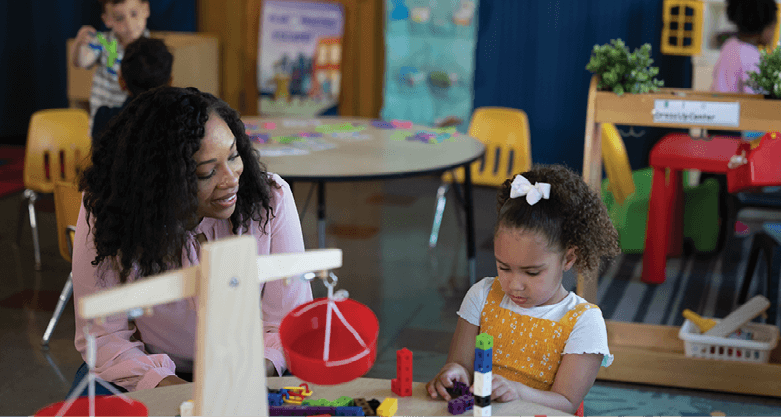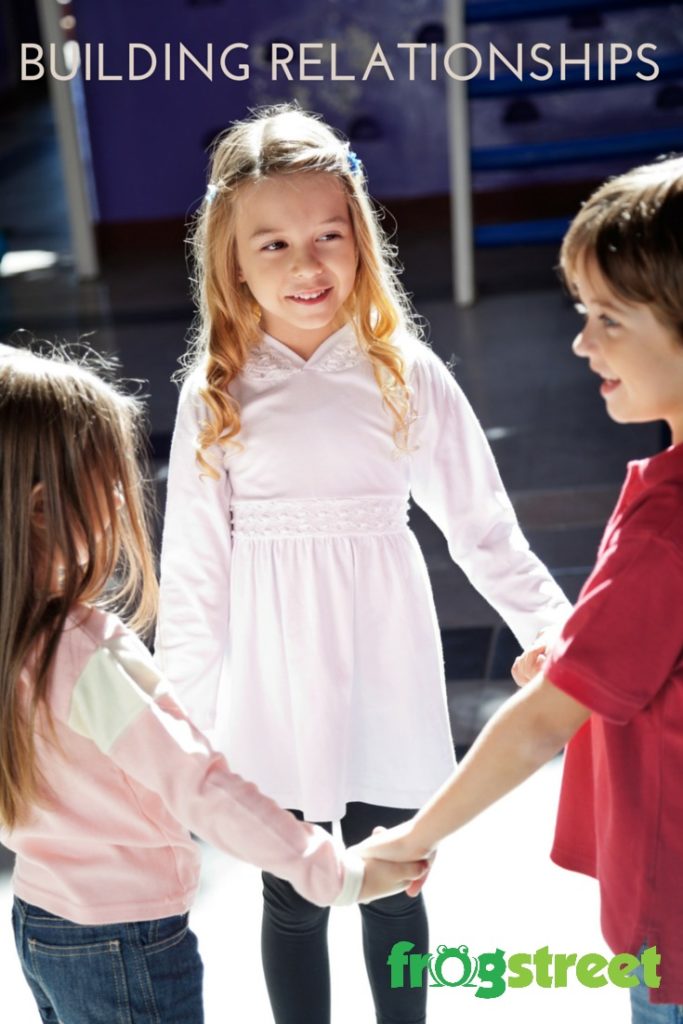November 16, 2021 / Blog
BUILDING RELATIONSHIPS IN THE EARLY CHILDHOOD CLASSROOM
Early learning classrooms are bursting with children eager to learn. These children come from diverse backgrounds, but the one thing they all have in common is the need for a safe learning environment. Building relationships is an integral part of creating a safe, unified early learning classroom.

How can you get the children to work together and take turns?
What do you do when little Jackson has the blue marker and Sophia wants it right now?
How do you get children to line up without pushing and shoving?
A child’s social skills, emotional state, and sense of value affect his or her academic learning. Yes, it is important for children to learn their letter sounds, count, and identify numbers. But it is also important for children to learn how to build relationships. An early learning classroom should help children establish secure relationships with adults and help them learn how to:
- Help, share, and work together in a group
- Take turns
- Participate in activities with the class
- Trust and respect responsible adults
- Engage and communicate with teachers and friends
- Develop friendships with peers
- Cooperate with others
- Be mindful of people and of the classroom environment
All of these learning goals are part of building relationships in the early learning classroom.
“The teacher is responsible for keeping the children safe.
Teachers guide learning and foster a safe learning environment.”
– pre-K Teacher
Positive Effects of Building Relationships
When building relationships is at the center of an early childhood classroom, the quality of student-teacher interactions and academics improves. Teachers and caregivers notice children using kind words with each other. They see children working together as a team towards common goals. There is a decrease in aggressive behaviors and negative attitudes. There is an overall improvement in the classroom climate. Academics and school readiness also increase.
“Oh, you can go first.”
– 4-year-old Sarah said to her friend.
How to Start Building Relationships
It is important for classrooms to have a curriculum embedded with building positive relationships into everyday play and learning. The Frog Street Infant, Toddler, Threes and Pre-K programs, are comprehensive programs that are not only child-centered and aligned to the Head Start Early Learning Framework, but also have a focus on social emotional development featuring Conscious Discipline®.
From the beginning of the year, children in classrooms using the Frog Street curriculums are taught strategies during morning circle time to self-regulate with breathing. They learn that, if they are feeling angry or feeling frustrated, they smile, take a deep breath and relax.
Teachers lead group discussions, model, and practice building relationship skills such as how to kindly get a friend’s attention, how to take turns, and how to solve friendship squabbles.

These opportunities to learn and practice within each day help children connect with others, disengage stress, and commit to making positive, kind choices.
“Children need to learn how to be positive community members who
are responsible to themselves and each other.”
– Mom to 3-year-old.
Learning More about Building Relationships in the Early Childhood Classroom
Admittedly, teachers and staff must first learn and implement strategies to create a compassionate classroom environment that encourages students to problem solve and self-regulate before they are able to teach them to children.
Even for experienced classroom teachers, it is important to continue to learn, and to make changes to routines to create a more effective learning environment.
Choosing a curriculum such as one of the Frog Street programs provides detailed lesson plans for teachers to follow. To learn even more about building relationships, teachers, staff, and administrators can:
- Read books on building relationships.
- Visit education websites for activities and information.
- Request and take in-service classes on building positive classroom relationships.
- Attend webinars on building relationships.
- Register for early childhood educational conferences that include topics for classroom management and building positive relationships.
- Purchase Professional Learning from Frog Street on curriculum or content specific early childhood topics.
